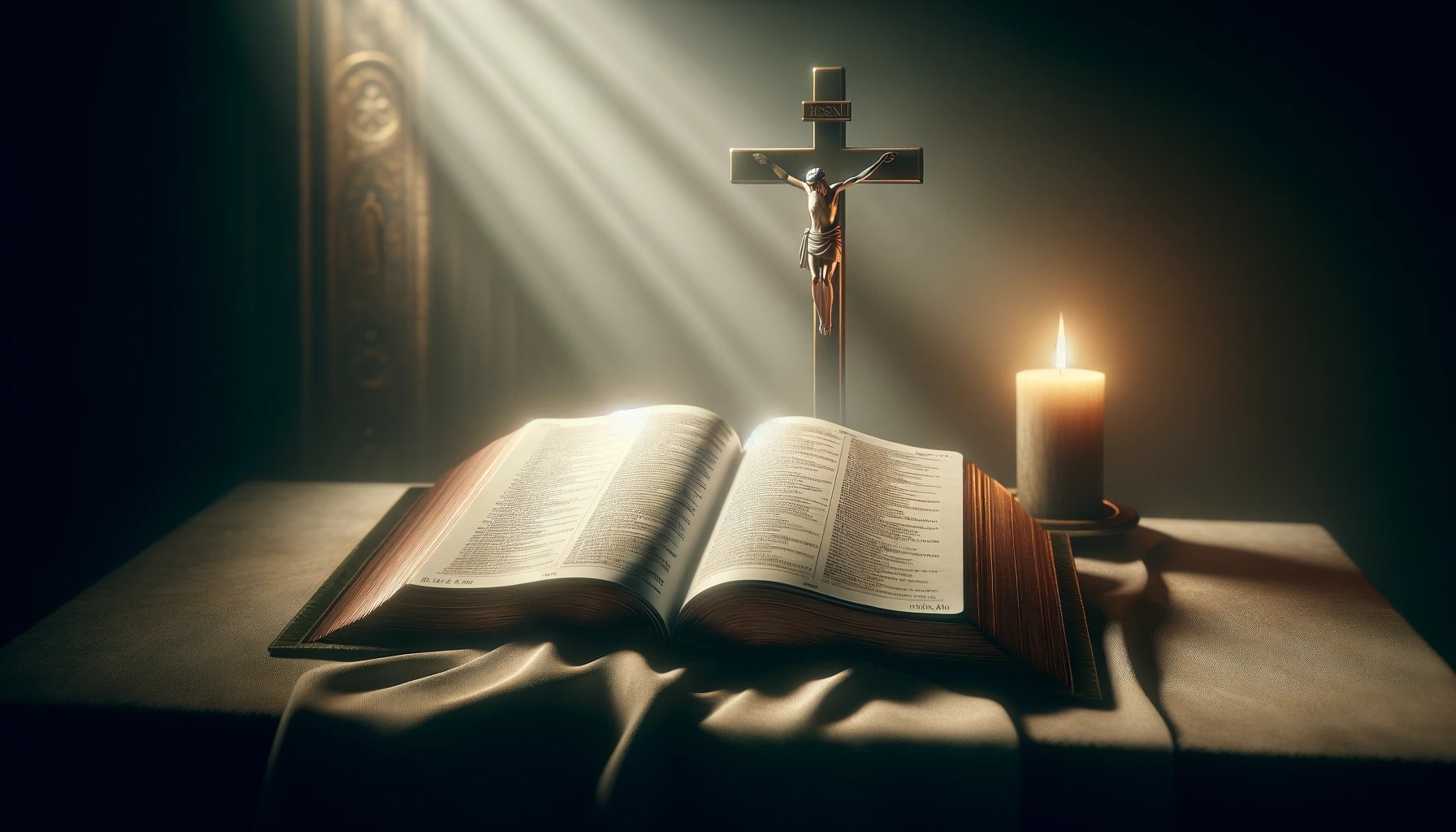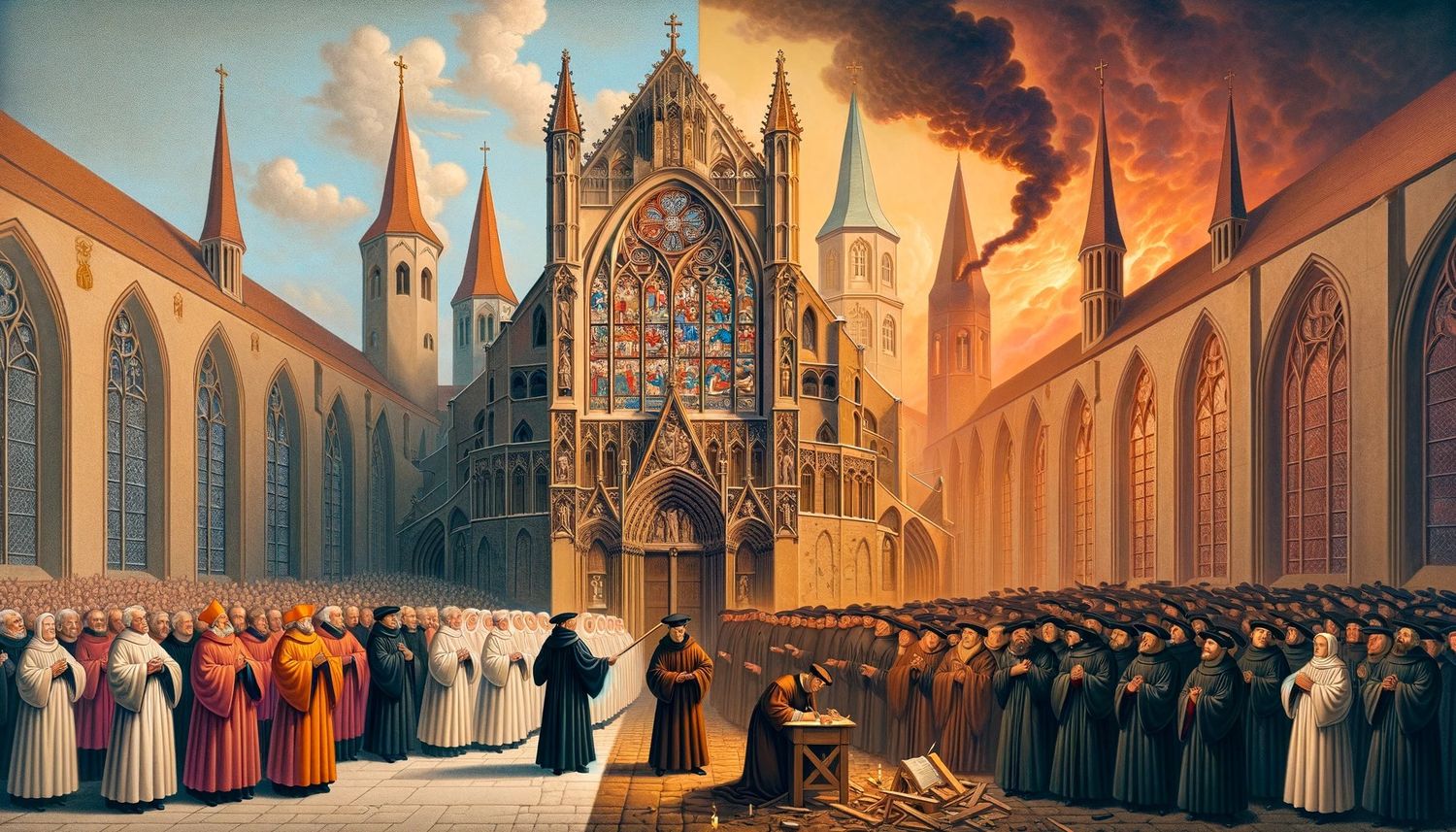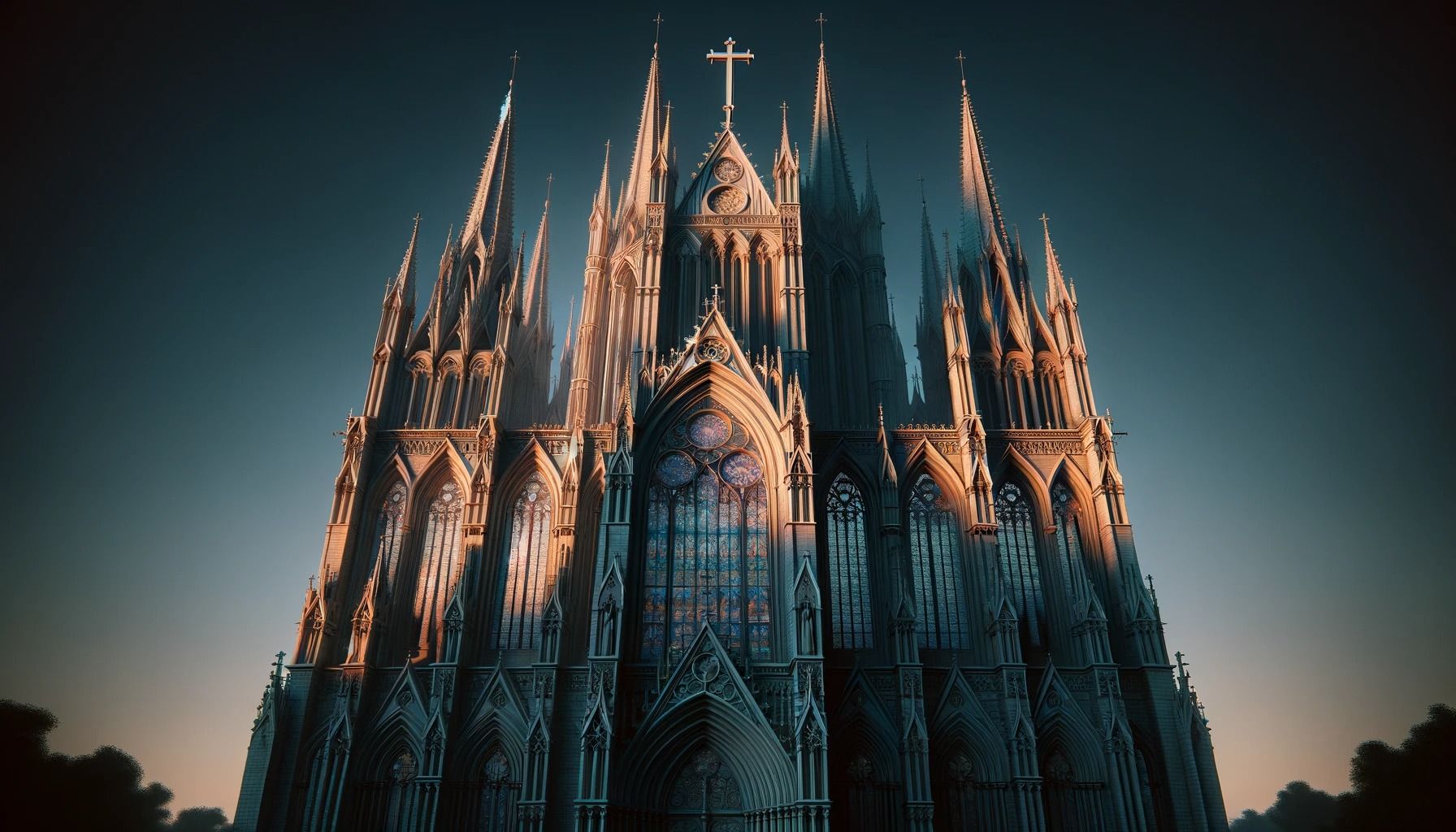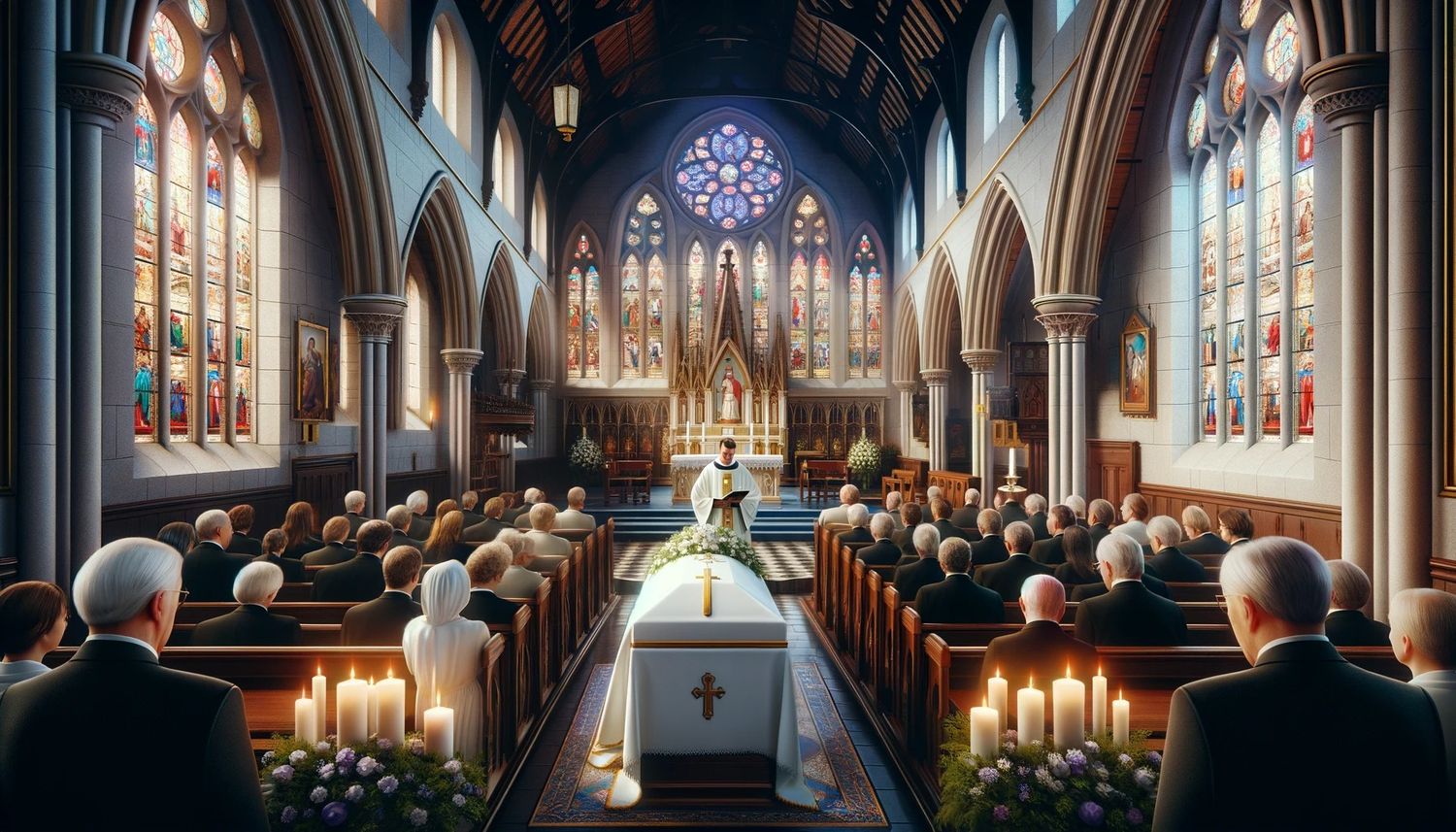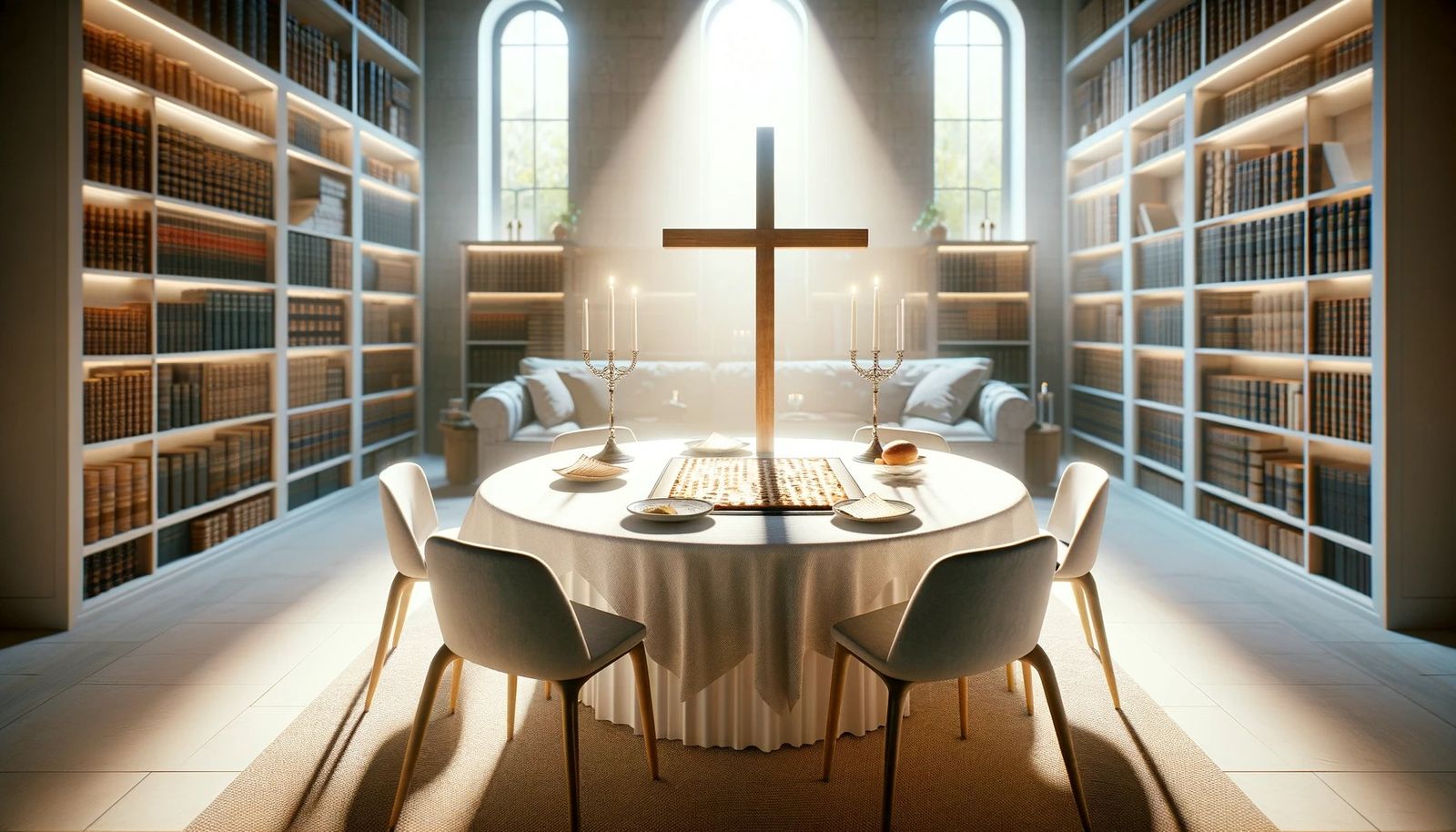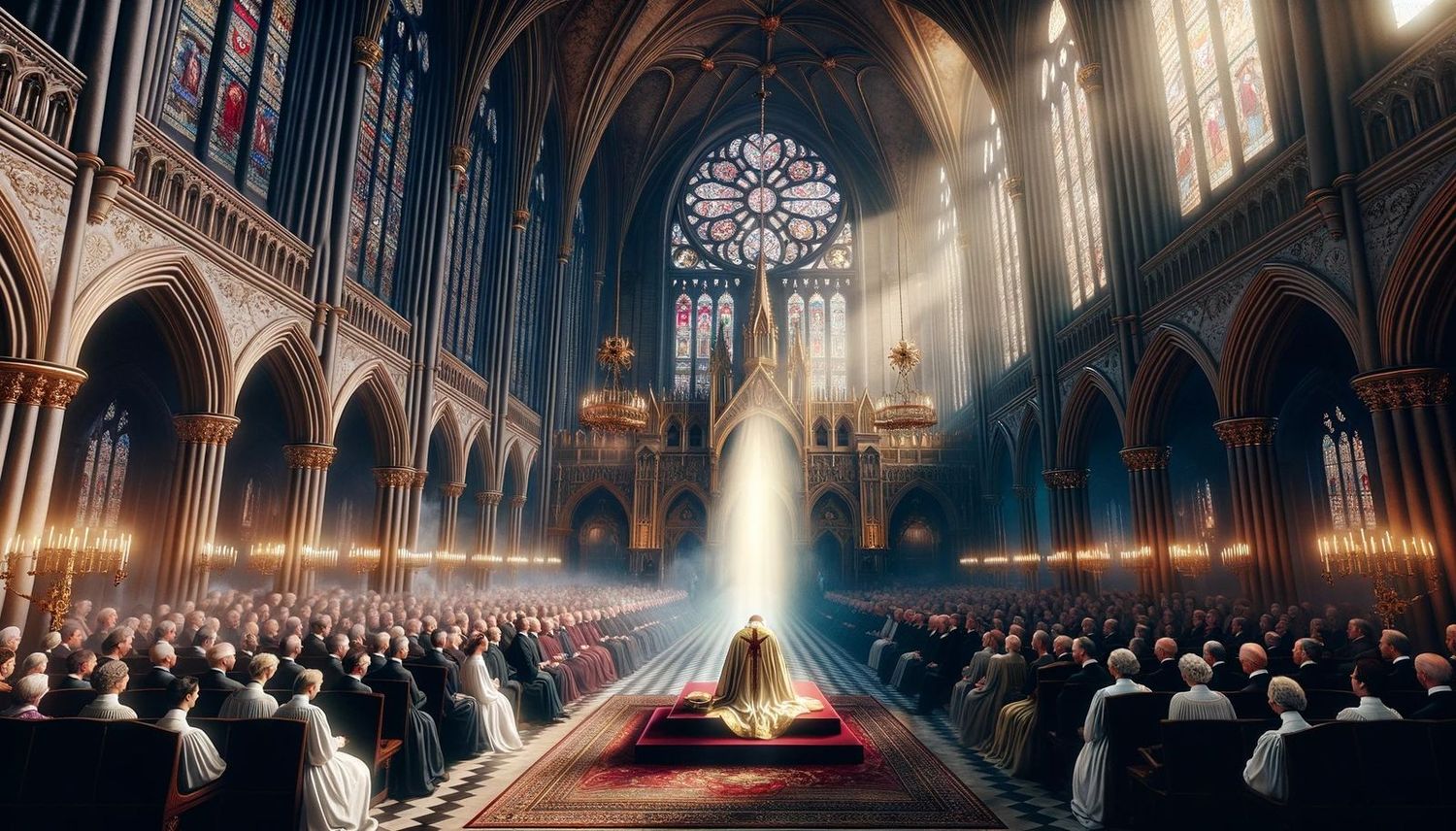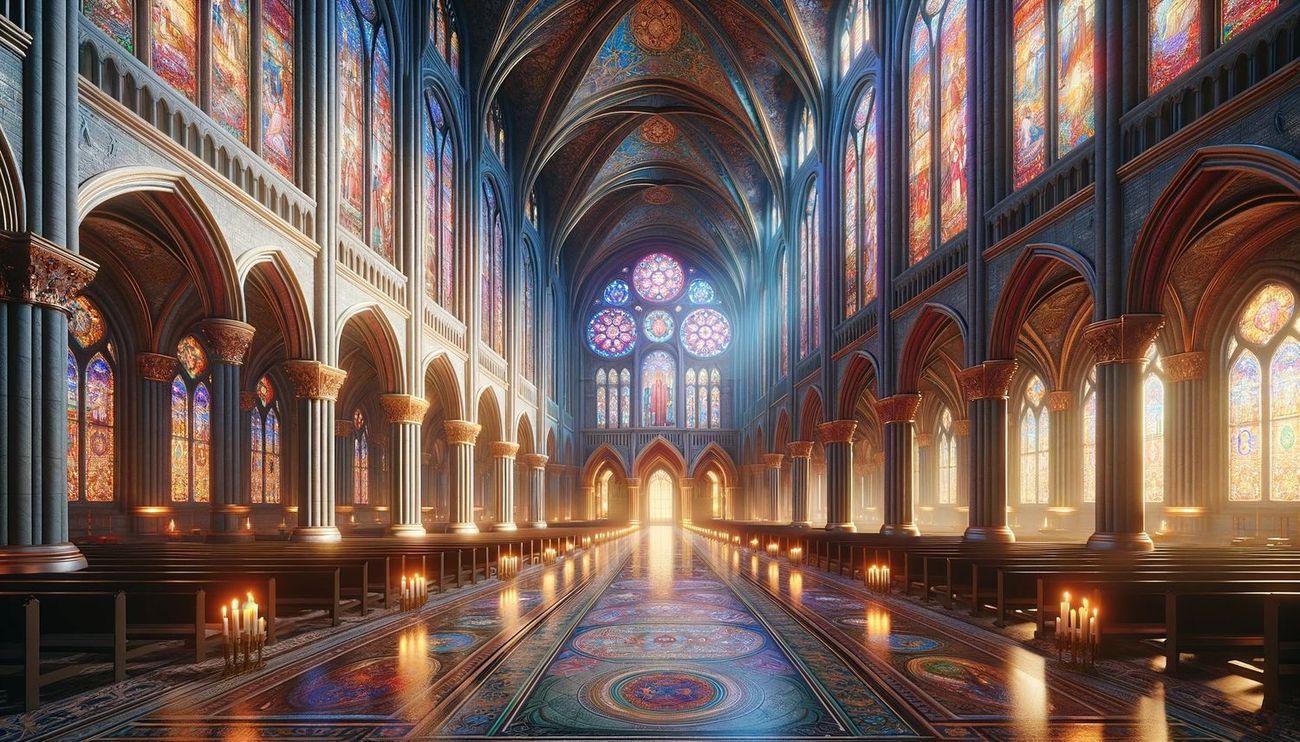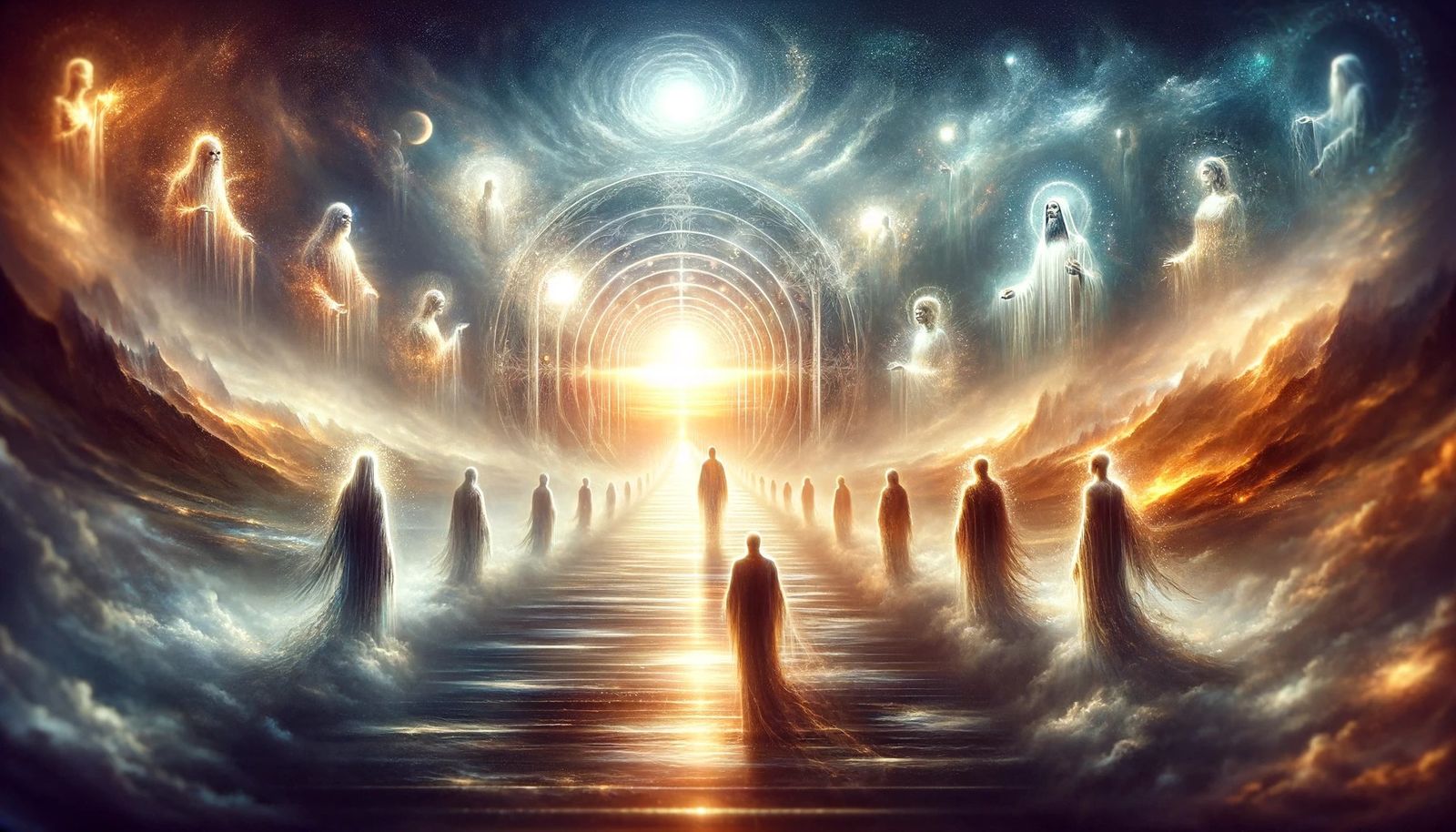Home>Theology and Spirituality>Why Is Catholicism So Ritualistic
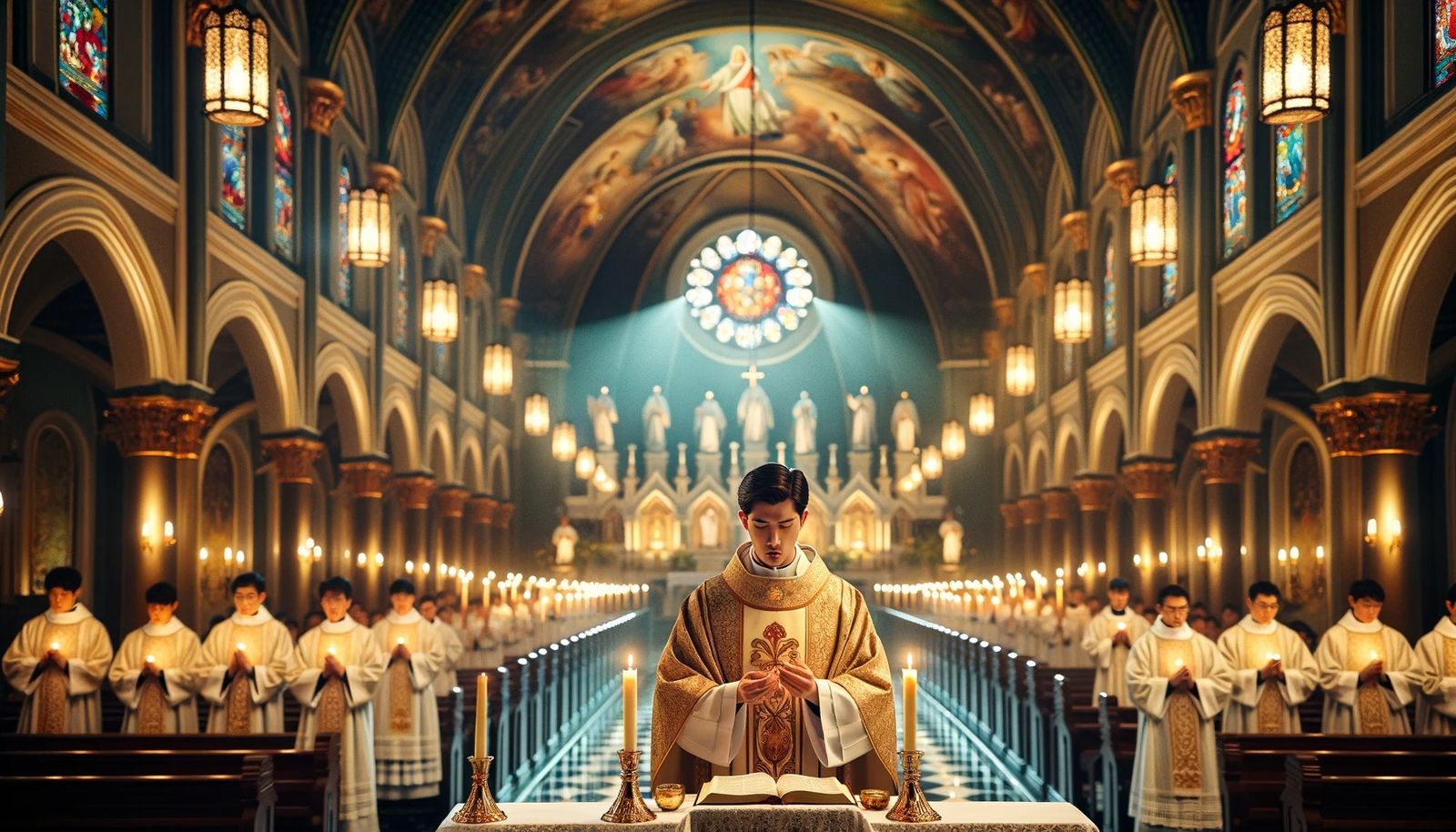

Theology and Spirituality
Why Is Catholicism So Ritualistic
Published: February 15, 2024
Peter Smith, Editorial Director at Christian.net, combines deep insights into faith, politics, and culture to lead content creation that resonates widely. Awarded for his contributions to religious discourse, he previously headed a major organization for religious communicators, enhancing dialogue on faith's societal impacts.
Discover the significance of rituals in Catholicism and explore the theological and spiritual aspects of this traditional practice. Learn why Catholicism is deeply rooted in ritualistic traditions.
(Many of the links in this article redirect to a specific reviewed product. Your purchase of these products through affiliate links helps to generate commission for Christian.net, at no extra cost. Learn more)
Table of Contents
Introduction
Catholicism, with its rich tapestry of rituals and traditions, has captivated the hearts and minds of millions of followers worldwide. The allure of ornate ceremonies, incense-laden masses, and time-honored customs has sparked curiosity and admiration among both the faithful and the curious observer. The question arises: Why is Catholicism so ritualistic?
Delving into the depths of Catholicism's rituals unveils a profound tapestry woven with history, tradition, and spiritual significance. These rituals are not mere formalities; they are deeply ingrained in the fabric of Catholic worship and spirituality, shaping the collective identity of the faithful and providing a sense of continuity with centuries of religious practice.
As we embark on this exploration, we will journey through the historical roots of Catholic rituals, unravel the role of tradition in shaping Catholicism, and uncover the profound significance and benefits of these rituals in the lives of believers. Moreover, we will address common criticisms and misconceptions surrounding Catholic rituals, seeking to shed light on their true essence and purpose.
Join us as we embark on a captivating odyssey through the captivating world of Catholic rituals, where ancient traditions intersect with the contemporary spiritual journey, offering profound insights and timeless wisdom.
Read more: Why Catholicism Or Orthodoxy
Historical Roots of Catholic Rituals
The historical roots of Catholic rituals can be traced back to the early days of Christianity, when the fledgling faith faced persecution and adversity. In these tumultuous times, rituals served as a means of solidarity, providing a sense of unity and identity among the early Christian communities. The rituals, such as the Eucharist and baptism, were not only acts of worship but also symbols of defiance against the prevailing pagan customs.
As Christianity gained prominence in the Roman Empire, the rituals evolved to incorporate elements from the surrounding cultures. The use of incense, candles, and sacred music found their way into Christian worship, adding a layer of solemnity and reverence to the rituals. The influence of Judaism also left an indelible mark on Christian rituals, with practices such as communal prayer, fasting, and the observance of feasts becoming integral to the Christian tradition.
The establishment of the Catholic Church further solidified the role of rituals in Christian worship. The early Church Fathers, such as St. Augustine and St. Ambrose, expounded on the significance of rituals in conveying the mysteries of the faith and nurturing the spiritual life of believers. The liturgical calendar, with its cycle of feasts and fasts, became a cornerstone of Catholic rituals, providing a rhythm that mirrored the life of Christ and the early Christian community.
The medieval period witnessed a flourishing of rituals, as cathedrals and monasteries became centers of artistic and spiritual expression. Elaborate rituals, such as the liturgy of the hours and the veneration of relics, became intertwined with the daily lives of the faithful, offering a sense of transcendence and continuity with the sacred.
The Protestant Reformation brought about significant changes in the landscape of Christian rituals, as reformers sought to simplify and purify the worship experience. Despite these reforms, the Catholic Church remained steadfast in its preservation of rituals, viewing them as a conduit for encountering the divine and nurturing the spiritual life of believers.
In essence, the historical roots of Catholic rituals are deeply intertwined with the evolution of Christianity itself. They reflect the resilience and adaptability of the faith in the face of changing times, while remaining steadfast in their ability to convey the timeless truths of the Christian message.
The Role of Tradition in Catholicism
Tradition holds a paramount position in the tapestry of Catholicism, serving as a vital link that connects the faithful to the rich heritage of the Church. Rooted in the teachings of Jesus Christ and the apostles, Catholic tradition encompasses a myriad of customs, rituals, and beliefs that have been passed down through generations. These traditions form the bedrock of the Church's identity and provide a sense of continuity with the early Christian community.
At the heart of Catholic tradition lies the concept of apostolic succession, which asserts that the authority and teachings of the apostles have been faithfully transmitted through the ages. This unbroken chain of succession, from the apostles to the bishops and priests of today, ensures the preservation of doctrinal integrity and the sacramental life of the Church. The reverence for tradition is not merely a nostalgic attachment to the past; rather, it is a living testimony to the enduring presence of Christ in the life of the Church.
The liturgical traditions of the Catholic Church, including the celebration of the Mass, the sacraments, and the liturgical calendar, are steeped in centuries-old practices that reflect the Church's unwavering commitment to preserving the sacred mysteries of the faith. These rituals serve as a bridge between the earthly and the divine, inviting believers to participate in the timeless drama of salvation and redemption.
Moreover, Catholic tradition encompasses a rich tapestry of devotional practices, such as the veneration of saints, pilgrimages, and the recitation of prayers and litanies. These customs not only foster a sense of communal solidarity but also provide a tangible link to the spiritual legacy of the Church, inspiring believers to emulate the virtues of the saints and seek their intercession in times of need.
The role of tradition in Catholicism extends beyond the realm of worship and spirituality; it permeates the moral and ethical fabric of the Church, offering timeless wisdom and guidance in navigating the complexities of human existence. The teachings of the Church Fathers, the writings of the saints, and the magisterial documents of the Church stand as pillars of moral authority, providing a compass for ethical discernment and moral decision-making.
In essence, tradition in Catholicism is not a relic of the past, but a living, breathing testament to the enduring presence of Christ in the life of the Church. It serves as a source of unity, continuity, and spiritual nourishment, anchoring the faithful in the timeless truths of the Christian message and guiding them on their journey of faith.
The Significance of Rituals in Catholic Worship
The rituals in Catholic worship hold profound significance, serving as conduits for spiritual communion, expressions of faith, and embodiments of sacred traditions. These rituals are not mere formalities; they are imbued with layers of symbolism, theological depth, and communal resonance that enrich the worship experience for the faithful.
At the heart of Catholic worship lies the Eucharist, often referred to as the "source and summit" of the Christian life. The ritual of the Mass, with its intricate choreography of prayers, readings, and sacramental gestures, encapsulates the central mystery of the faith: the real presence of Christ in the consecrated bread and wine. Through the ritual of the Eucharist, Catholics partake in a profound encounter with the divine, uniting themselves with Christ and with one another in a sacred communion of love and grace.
The sacraments, encompassing rituals such as baptism, confirmation, reconciliation, marriage, holy orders, and the anointing of the sick, are pivotal moments in the life of a Catholic. These rituals mark significant milestones in the spiritual journey of believers, imparting grace, healing, and empowerment as individuals are initiated into the Church, receive strength for life's challenges, and are united in the sacrament of matrimony or ordained ministry.
The liturgical calendar, with its cycle of feasts, fasts, and solemnities, punctuates the rhythm of Catholic worship, guiding the faithful through the mysteries of Christ's life, death, and resurrection. These rituals not only commemorate key events in salvation history but also invite believers to enter into the sacred temporality of the Christian narrative, fostering a sense of spiritual connectedness with the timeless truths of the faith.
Furthermore, the rituals of Catholic worship are steeped in symbolism and sensory richness, engaging the whole person in the act of worship. The use of incense, candles, sacred music, and ritual gestures creates a multisensory tapestry that elevates the worship experience, evoking a sense of transcendence and beauty that resonates with the human spirit.
In essence, the significance of rituals in Catholic worship transcends mere outward observance; it encompasses a profound engagement with the sacred, a communal expression of faith, and a timeless connection to the living tradition of the Church. These rituals serve as portals to the divine, inviting believers to immerse themselves in the mysteries of the faith and to encounter the transformative power of God's love in tangible and profound ways.
The Psychological and Spiritual Benefits of Rituals in Catholicism
The rituals in Catholicism offer a myriad of psychological and spiritual benefits that enrich the lives of believers and foster a deep sense of connection with the divine. These rituals, steeped in symbolism, tradition, and communal participation, serve as transformative conduits for the human spirit, nurturing psychological well-being and fostering spiritual growth.
One of the primary psychological benefits of Catholic rituals is the sense of structure and continuity they provide. The rhythmic cadence of the liturgical calendar, with its cycle of feasts, fasts, and seasons, offers a comforting framework that mirrors the ebb and flow of human life. This sense of temporal order and predictability can provide solace and stability in the face of life's uncertainties, offering a sacred rhythm that guides believers through the seasons of joy, penitence, and celebration.
Moreover, the rituals in Catholicism engender a profound sense of communal belonging and solidarity. The act of participating in rituals alongside fellow believers fosters a deep sense of connection and shared identity, reinforcing the bonds of community and mutual support. This communal dimension of rituals can alleviate feelings of isolation and foster a sense of belonging, providing a spiritual family where individuals can find acceptance, affirmation, and mutual encouragement.
From a spiritual perspective, the rituals in Catholicism serve as tangible expressions of faith and devotion, providing believers with opportunities to encounter the divine in a palpable and transformative manner. The ritual of the Eucharist, in particular, offers a profound encounter with the real presence of Christ, nourishing the soul and deepening the intimacy of the believer's relationship with God. Similarly, the sacraments, such as baptism and reconciliation, bestow grace and healing, nurturing the spiritual well-being of individuals and strengthening their bond with the divine.
Furthermore, the sensory richness of Catholic rituals, including the use of incense, sacred music, and ritual gestures, engages the whole person in the act of worship, evoking a sense of transcendence and beauty that resonates with the human spirit. These multisensory experiences can evoke profound emotions, elevate the soul, and create a sacred space for encountering the divine, fostering a deep sense of spiritual fulfillment and inner peace.
In essence, the psychological and spiritual benefits of rituals in Catholicism are manifold, offering believers a sense of structure, communal belonging, and transformative encounters with the divine. These rituals serve as conduits for psychological well-being and spiritual growth, nurturing the holistic flourishing of individuals and communities within the rich tapestry of Catholic tradition.
Read more: Why Is Catholicism A Cult
Criticisms and Misconceptions about Catholic Rituals
Despite the profound significance and spiritual depth of Catholic rituals, they have been subject to various criticisms and misconceptions, often stemming from misunderstandings or differing perspectives. It is important to address these criticisms and misconceptions to provide a more nuanced understanding of the role and impact of rituals within the Catholic tradition.
One common criticism leveled against Catholic rituals is the perception of excessive formality and rigidity, with some critics arguing that the rituals may hinder authentic spiritual expression and personal connection with the divine. This critique often arises from a misunderstanding of the purpose of rituals within the Catholic context. In reality, Catholic rituals are designed to serve as pathways for encountering the sacred, providing a framework for communal worship and spiritual engagement. Far from being rigid formalities, these rituals offer a rich tapestry of symbols and gestures that invite believers into a profound and transformative experience of faith.
Another misconception surrounding Catholic rituals pertains to their alleged lack of relevance in the modern world. Critics may argue that the rituals are archaic and disconnected from contemporary realities, failing to resonate with the needs and aspirations of today's believers. However, this view overlooks the enduring vitality of Catholic rituals, which continue to inspire and nourish the spiritual lives of millions of individuals worldwide. The rituals, far from being relics of the past, offer timeless wisdom and spiritual nourishment that transcends cultural and temporal boundaries, speaking to the universal yearnings of the human heart.
Furthermore, some critics may question the authenticity of Catholic rituals, viewing them as empty gestures devoid of personal meaning or significance. This misconception fails to recognize the deeply personal and communal dimensions of Catholic rituals, which hold profound significance for believers on both individual and collective levels. The rituals, whether sacramental celebrations, liturgical practices, or devotional customs, serve as tangible expressions of faith, offering believers opportunities for encountering the divine and nurturing their spiritual growth.
It is essential to address these criticisms and misconceptions with a spirit of openness and understanding, recognizing that differing perspectives contribute to a rich tapestry of dialogue and reflection. By delving deeper into the true essence and purpose of Catholic rituals, we can cultivate a more informed and appreciative perspective, acknowledging the profound impact and enduring relevance of these rituals in the lives of believers throughout history and into the present day.
Conclusion
In conclusion, the ritualistic nature of Catholicism is a testament to the enduring legacy of tradition, the profound significance of worship, and the transformative power of communal spirituality. The historical roots of Catholic rituals, intertwined with the evolution of Christianity, reflect the resilience and adaptability of the faith in the face of changing times. These rituals serve as conduits for encountering the divine, nurturing the spiritual life of believers, and fostering a deep sense of communal belonging.
The role of tradition in Catholicism is pivotal, providing a sense of continuity with the early Christian community and anchoring the faithful in the timeless truths of the Christian message. The liturgical traditions, sacraments, and devotional practices form a rich tapestry of spiritual expression, offering believers a tangible link to the sacred legacy of the Church and guiding them on their journey of faith.
The significance of rituals in Catholic worship transcends mere outward observance; it encompasses a profound engagement with the sacred, a communal expression of faith, and a timeless connection to the living tradition of the Church. These rituals serve as portals to the divine, inviting believers to immerse themselves in the mysteries of the faith and to encounter the transformative power of God's love in tangible and profound ways.
Moreover, the psychological and spiritual benefits of rituals in Catholicism are manifold, offering believers a sense of structure, communal belonging, and transformative encounters with the divine. These rituals serve as conduits for psychological well-being and spiritual growth, nurturing the holistic flourishing of individuals and communities within the rich tapestry of Catholic tradition.
Addressing criticisms and misconceptions about Catholic rituals is essential in fostering a more nuanced understanding of their role and impact. By delving deeper into the true essence and purpose of Catholic rituals, we can cultivate a more informed and appreciative perspective, acknowledging the profound impact and enduring relevance of these rituals in the lives of believers throughout history and into the present day.
In essence, the ritualistic nature of Catholicism is a testament to the enduring vitality of tradition, the profound significance of worship, and the transformative power of communal spirituality. These rituals, far from being relics of the past, continue to inspire and nourish the spiritual lives of millions of individuals worldwide, offering timeless wisdom and spiritual nourishment that transcends cultural and temporal boundaries, speaking to the universal yearnings of the human heart.


